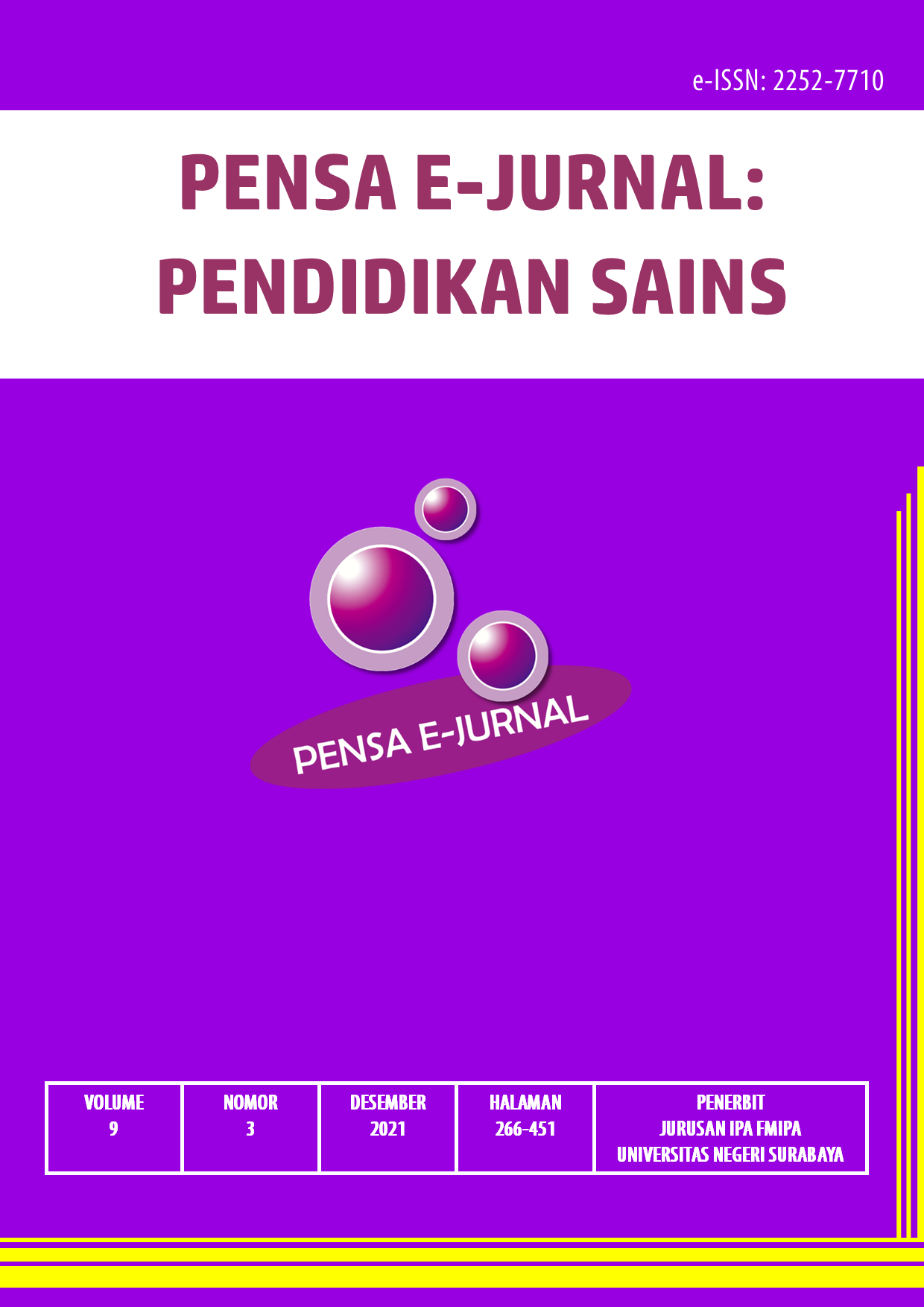PENERAPAN SELF-ASSESSMENT DALAM PEMBELAJARAN DARING UNTUK MENINGKATKAN KEMAMPUAN SELF-REGULATION SISWA SMPN 1 GRESIK
DOI:
https://doi.org/10.26740/pensa.v9i3.40979Keywords:
self-assessment, self-regulation, learning motivationAbstract
This study aims to determine the increase in students' self-regulation abilities after the application of self-assessment during the online science learning process. This research was a Pre-Experimental Design using One Group Pretest-Posttest Design. The subjects of this study were 22 students of VIII-F class at SMPN 1 Gresik in the 2020/2021 academic year. The data collection techniques used a self-assessment test method and questionnaire method in the form of a pre-post self-regulation questionnaire based on seven essential indicators in the LASSI (Learning and Study Strategies Inventory) Instrument. The self-assessment sheet used to practice students' self-regulation abilities during the learning process and the self-regulation questionnaire used to determine achievement and improvement on each student's self-regulation indicator. Through the self-regulation questionnaire, it was found that students' self-regulation abilities had an average increase of 30% (N-Gain: moderate). This increase occurred because through self-assessment, students became more accustomed to assessing and criticizing the process and also the achievement of their own online learning at their homes. All indicators of students' self-regulation ability in online science learning have been achieved in the good category. The highest increase occurred in the motivation indicator (N-Gain: 0.32), while the lowest increase occurred in the self-testing indicator (N-Gain: 0.05). Through the self-assessment sheet, it was found that 86.36% of students had a very good category of self-regulation ability. The application of self-assessment can be used as a reference by science teachers to improve students' self-regulation skills and learning motivation in online learning during the COVID-19 pandemic.
Downloads
Downloads
Published
How to Cite
Issue
Section
 Abstract views: 792
,
Abstract views: 792
, PDF Downloads: 1017
PDF Downloads: 1017

















